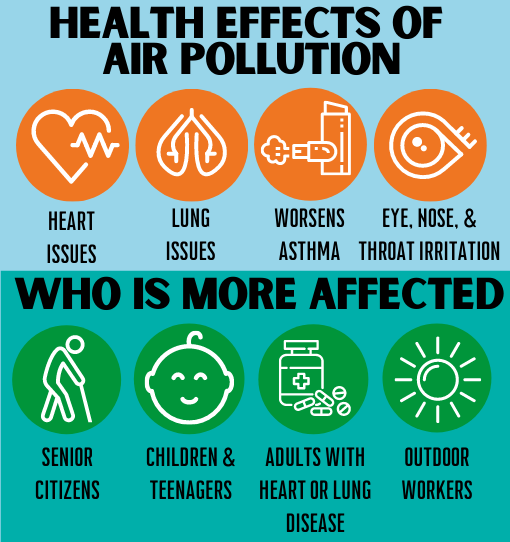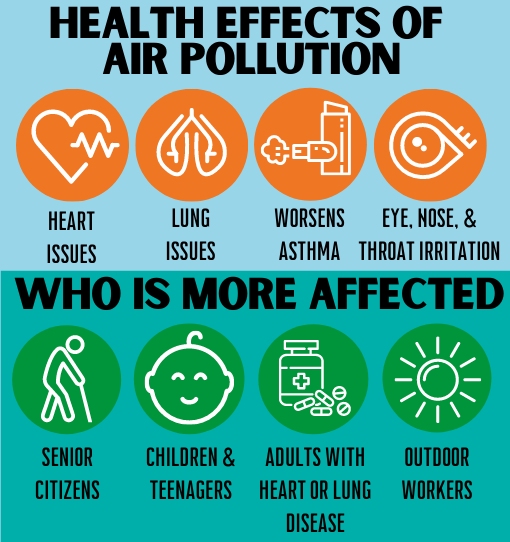페이지 정보
본문

How Air Quality Impacts Our Health and What We Can Do About It

Recorded by Supu
2024.05.26
Script
Welcome to my podcast that explores the critical connection between air quality and our health, and discuss actionable steps we can all take to breathe cleaner, healthier air. I’m Supuni Dayasheela, and today we're diving into how air quality impacts our health and what we can do about it, right here in South Korea. Air pollution includes invisible threats like particulate matter (PM2.5 and PM10), nitrogen dioxide, sulfur dioxide, and ozone. These pollutants come from vehicle emissions, industrial activities, and even natural sources like wildfires and yellow dust storms. They can penetrate deep into our lungs and enter our bloodstream, causing a range of health problems from respiratory issues to cardiovascular diseases. Let's break it down scientifically. Pollutants like PM2.5 cause inflammation in the respiratory tract, leading to chronic diseases like asthma and chronic obstructive pulmonary disease (COPD). Long-term exposure increases the risk of heart disease, stroke, and lung cancer. For children, the elderly, and those with preexisting conditions, the risks are even higher. Children’s developing lungs are particularly vulnerable, leading to lifelong health issues, while the elderly may experience exacerbation of existing health problems. Here in South Korea, air quality is a significant concern. However, there have been concerted efforts to improve it. Stricter vehicle emissions standards, promoting public transportation, and investing in green technologies are some steps being taken to combat air pollution. Personal stories highlight the human impact of poor air quality. For example, many families in Seoul have seen their children’s asthma worsen on high pollution days. They have taken steps like using air purifiers and monitoring air quality alerts to protect their family’s health. But it’s not all doom and gloom—there are innovative solutions. Electric vehicles reduce emissions from transportation, and new air filtration systems can remove up to 99% of pollutants from indoor air. Staying informed is key: use apps and websites to monitor local air quality. On high pollution days, limit outdoor activities and use air purifiers indoors. Looking ahead, climate change may worsen air quality issues, but collective action can make a difference. Supporting policies that promote renewable energy, reduce emissions, and protect natural environments is crucial. Thank you for listening. And remember, clean air is a right, not a privilege. Stay informed, take action, and breathe easy. Until next time, I’m reminding you to keep the air clean and your health a priority.
첨부파일
-
Supu_Podcast 2024.mp3 (3.0M)
0회 다운로드 | DATE : 2024-05-27 01:23:09
